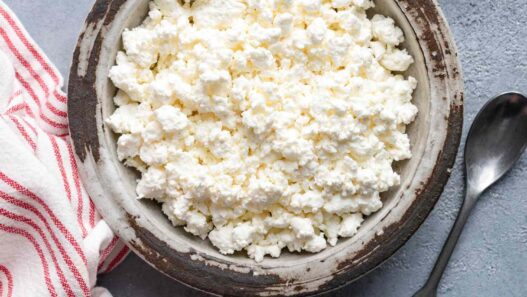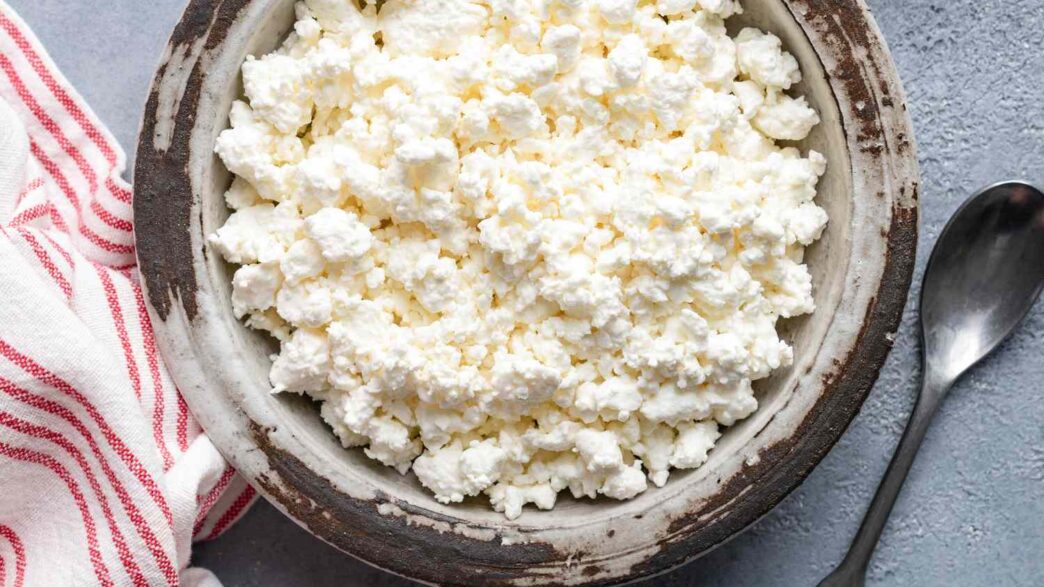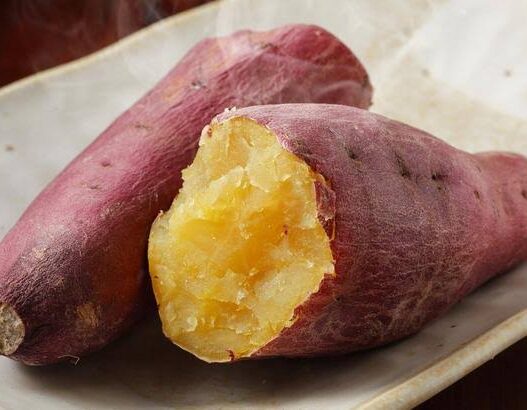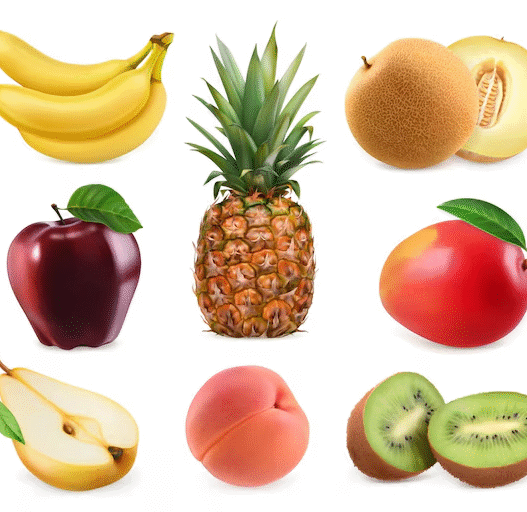Because of its versatility, cottage cheese can be used in a wide variety of dishes. It has become more and more well-liked in recent decades and is frequently suggested as a component of a balanced diet due to cottage cheese nutrition facts and benefits for health.
It contains important nutrients in addition to a lot of protein. These factors make it popular among athletes and a common component of diet programs.
This article lists cottage cheese nutrition, benefits of including cottage cheese in your diet and explains why it’s so healthy.
Cottage Cheese – What Is It?
White, creamy, and soft is cottage cheese. Since it is regarded as a fresh cheese, its flavor does not develop through aging or ripening.
Because of this, its flavor is much milder than that of matured cheeses.
The curds of several types of pasteurized cow’s milk, such as ordinary, reduced-fat, or nonfat milk, are used to make cottage cheese.
Additionally, it comes in creamed, whipped, lactose-free, reduced sodium, or salt-free variations, and it comes in a variety of curd sizes, including small, medium, and large.
This adaptable cheese can be eaten on its own or as a component of other dishes.
Cottage Cheese Is Nutrient-rich
The amount of sodium added and the amount of milk fat utilized determine the nutritional profile of cottage cheese.
For persons aged 19 and up who are not pregnant, nursing, or nursing, a half-cup, or 113-gramTrusted Source (g), portion of low-fat (1% milk fat) cottage cheese has the following nutrients:
- 81 calories
- 14 g of protein and 3 g of carbs
- 1 g of fat
- 29% of the Daily Value (DV) of vitamin B12
- 20% of the DV for sodium
- DV for selenium: 18.5%
- 14% of the DV for men and 17% for women is riboflavin.
- DV for phosphorus: 21.5%
- Calcium: 6% of the DV for men aged 19–70 and women aged 19–50; 5% of the DV for women aged 51 and men aged 71 and above.
- 3% of the DV for folate
- Additionally, it offers less than 5% of the DV for copper, zinc, choline, and vitamin B6.
- Cottage cheese has about 3% carbohydrates. It contains lactose, a milk sugar that can be hard for some individuals to stomach.
When consuming large quantities of cottage cheese, think about purchasing low-sodium or sodium-free types. Some people’s blood pressure rises when they consume a lot of sodium, which may increase their risk of heart disease.
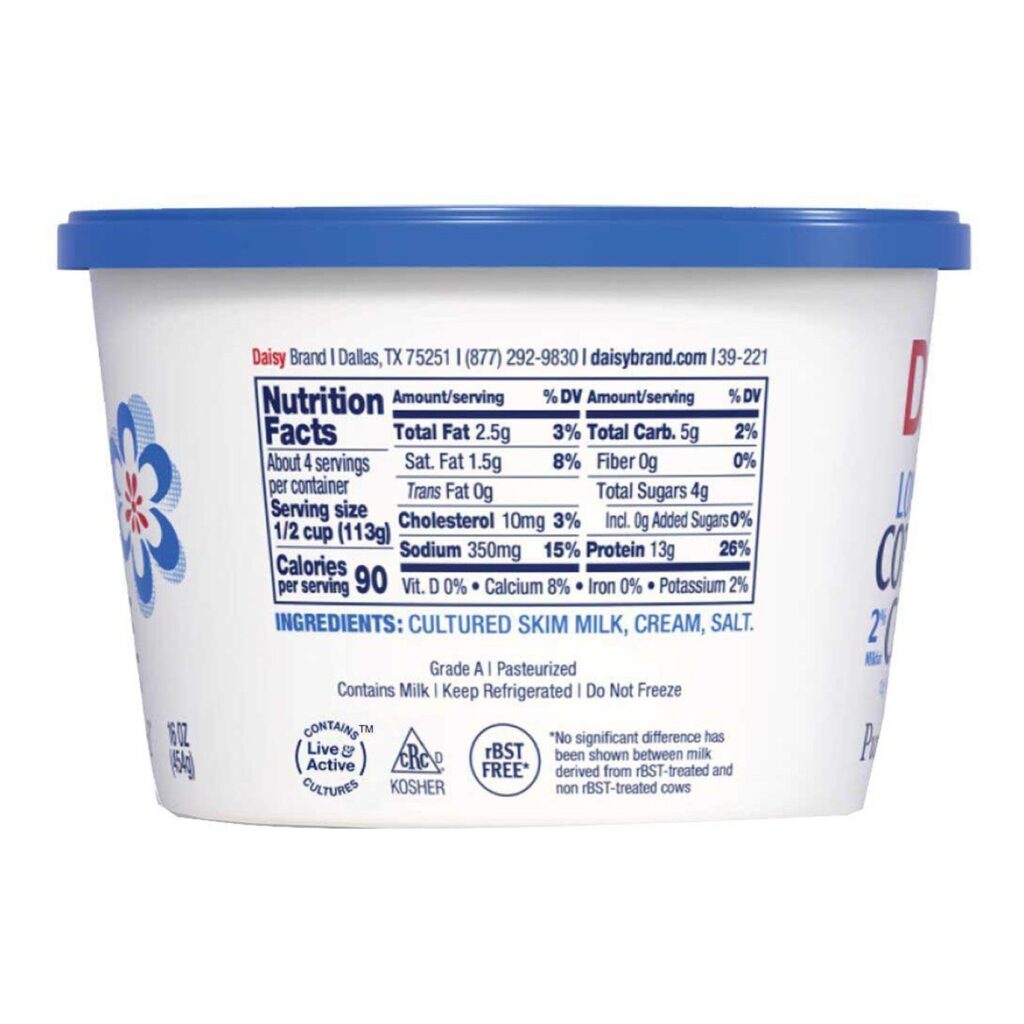
Interestingly, more than 70% of cottage cheese’s calories come from protein.
Health Benefits Of Cottage Cheese
Other health advantages have also been linked to cottage cheese.
Could aid in preventing insulin resistance
Heart disease and type 2 diabetes can develop as a result of insulin resistance.
Fascinatingly, several studies indicate that eating dairy products may reduce your risk of developing insulin resistance.
According to one animal study, calcium may control insulin sensitivity and lower insulin resistance in rats given a high-fat diet, albeit the precise mechanism is unknown.
Can strengthen bones
Cottage cheese is a good source of protein and phosphorus in addition to calcium. Better bone health has been continuously associated with certain nutrients.
A good source of selenium
Cottage cheese provides 19% of the DVTrusted Source of selenium in a half-cup (113-g) portion. It has been demonstrated that this mineral improves blood antioxidant protection.
What Is the best way to include cottage cheese in your diet?
Because of its mild flavor and tender texture, cottage cheese is simple to include into dishes and meals.
Here are some inventive cottage cheese recipes:
- Waffles or pancakes: Add it to the batter in place of milk.
- Salads: To add more protein to your favorite salads, add it.
- Fruit: Add berries, banana slices, peach slices, mandarin wedges, and chunks of melon to it.
- Granola: Sprinkle granola on top and pour honey over it.
- Sour cream substitute: It functions effectively as a sour cream alternative.
- Dip sauces: You can use it in place of milk in dipping sauces.
- Smoothies: To make a fruit smoothie, blend it with some milk and fruit.
- Toast: It creates a rich, creamy spread.
- Baked products: Use it to make dinner rolls, cakes, muffins, or bread.
- Use it in dishes or as a spread on sandwiches as a mayo alternative.
- Scrambled eggs with cottage cheese will have a more creamy texture.
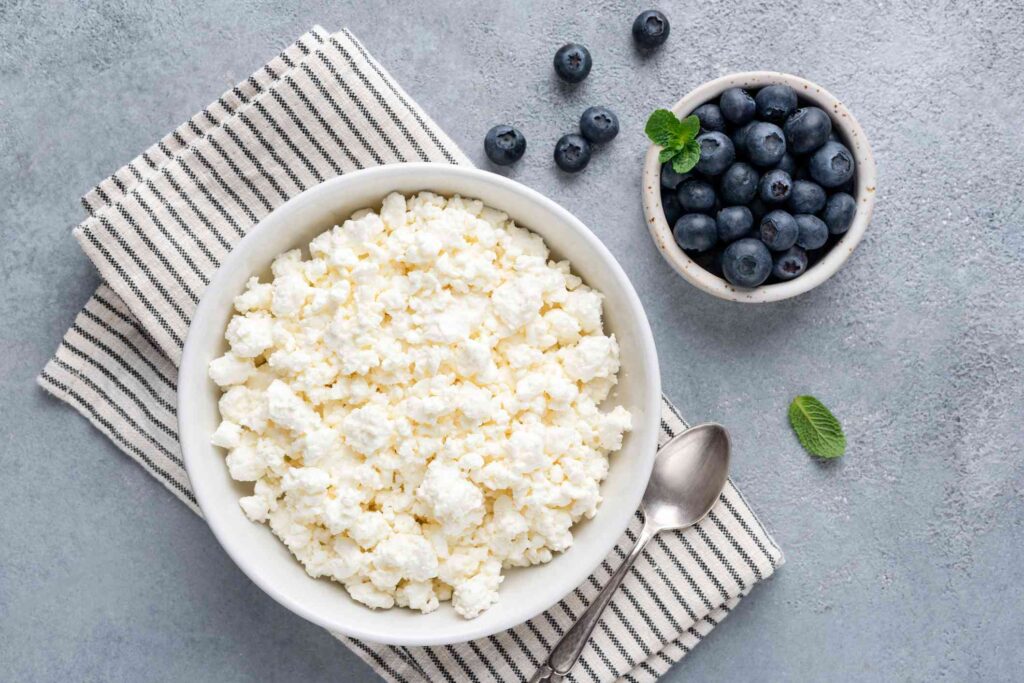
Conclusion
Cottage cheese nutrition facts suggest that it is comparatively low in fat, high in calcium, and loaded in protein. It can be a great addition to your diet if you’re attempting to reduce weight.
It is beneficial for your thyroid, helps control type 2 diabetes, and strengthens bones. However, you will need to use caution if you are monitoring your intake of salt. Cottage cheese may contain a lot of salt.






